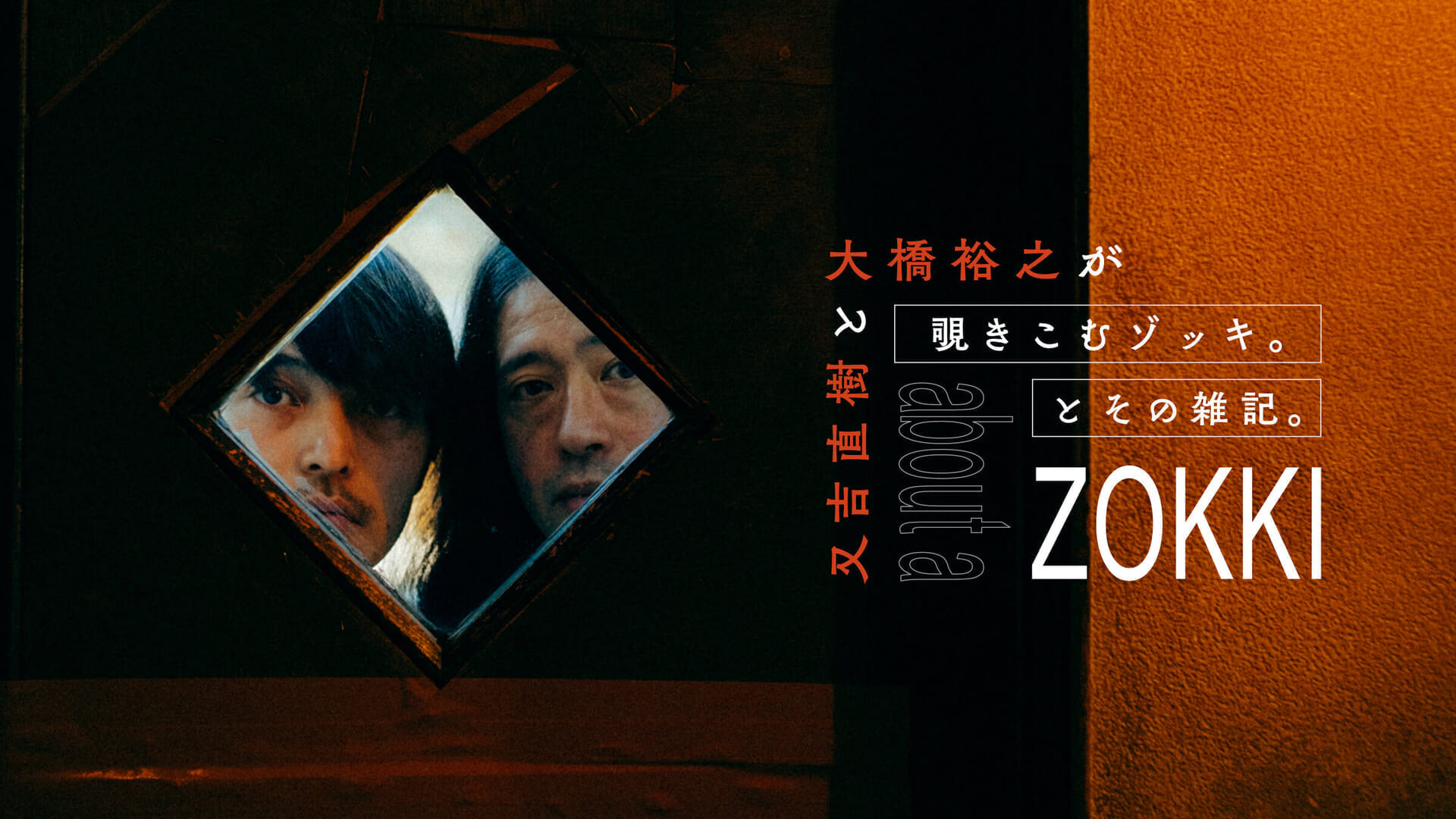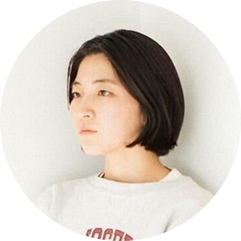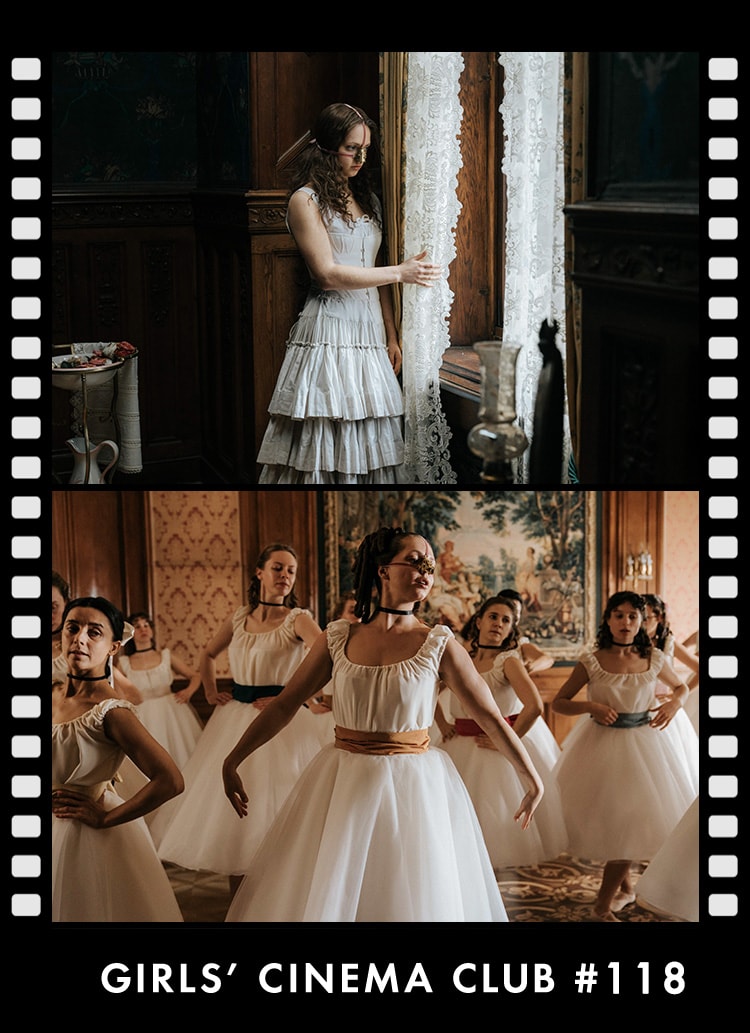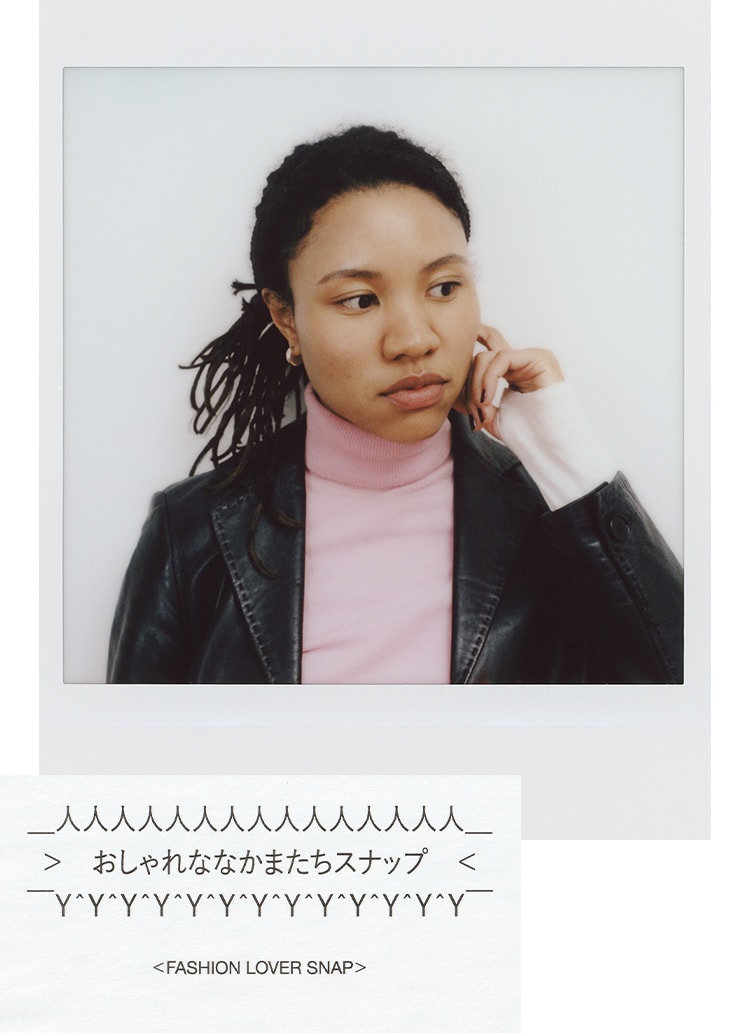Today, the earth still revolves around "secrets and lies. A woman is stunned by the number of secrets her grandfather keeps, who advises her to "treasure your secrets and keep as many as you can. A man heads south with a bicycle and a sleeping bag, relying on the promise that he has no destination. A boy is told by the friend he has finally made that he has fallen in love with his sister, who is not supposed to be there. What is the end result of these small incidents on the outskirts of town?
PROFILE

Born in Gamagori City, Aichi Prefecture, he began his career in earnest in 2005 with self-published manga such as "Mystery Manga Works. New Olympics," "Music Complete Edition," "City Lights Complete Edition (Top and Bottom)," "The Room of the Shoals," "The Soccer," "Zokki: Hiroyuki Ohashi's Phantom Early Works (A and B)" (all published by Kanzen), "Taro wanted to become water" (published by Lido), "Hiroyuki Ohashi's 1P" (published by Space Shower Network). In March 2009, "Zokki C: The Works of Hiroyuki Ohashi" was released.
PROFILE

Born in Gamagori City, Aichi Prefecture, he began his career in earnest in 2005 with self-published manga such as "Mystery Manga Works. New Olympics," "Music Complete Edition," "City Lights Complete Edition (Top and Bottom)," "The Room of the Shoals," "The Soccer," "Zokki: Hiroyuki Ohashi's Phantom Early Works (A and B)" (all published by Kanzen), "Taro wanted to become water" (published by Lido), "Hiroyuki Ohashi's 1P" (published by Space Shower Network). In March 2009, "Zokki C: The Works of Hiroyuki Ohashi" was released.
PROFILE

Born in Osaka in 1980, he moved to Tokyo in 1999 and was a 5th year student at NSC Tokyo. In 2003, he published his first full-length novel, "Spark," which won the 153rd Akutagawa Prize. It became a bestseller, selling over 3 million copies, and has been made into a TV drama, a movie, and a stage play. His other books include "Gekijo," "Tokyo Hyakkei," "Overcoming the Night," and "Ningen.
PROFILE

Born in Osaka in 1980, he moved to Tokyo in 1999 and was a 5th year student at NSC Tokyo. In 2003, he published his first full-length novel, "Spark," which won the 153rd Akutagawa Prize. It became a bestseller, selling over 3 million copies, and has been made into a TV drama, a movie, and a stage play. His other books include "Gekijo," "Tokyo Hyakkei," "Overcoming the Night," and "Ningen.
A story where comprehension and incomprehension coexist.

MATAYOSHI-san contributed a commentary to Ohashi-san's "City Lights," and conversely, when his full-length novel "Ningen" was published, Ohashi-san drew a 3-minute comic strip for the book. What brought you two together for the first time, as you have often interacted with each other in the past?
Ohashi:I looked it up yesterday because I knew you would probably ask (laughs). The first time we met was in 2007. A mutual acquaintance, writer/editor Kowloon Joe, was like, "There is someone I want you to meet," and we had a drink at Kichijoji.
Matayoshi:We talked a lot, didn't we?
Ohashi:I think I asked a lot of things one way or another because I was a comedy buff. Probably a lot of rude things .......
Matayoshi:I remember having a lot of fun. After that, we had dinner together several times, and he helped me out whenever I needed it. When he first showed me his manga, I read it and found it very interesting.


What attracted you to Ohashi's works?
Matayoshi:There are a lot of them, but I would say that they are interesting and funny, and that they are strangely realistic or understandable. There is both a sense of incomprehension and a sense of understanding. I like the fact that there is also a sense of unexplainable stimulation in the realistic atmosphere and temperature. Depending on the work, there is a strange sense of nostalgia, and all sorts of interesting things are mixed in.
Ohashi:Matayoshi-kun's stories also have some strange elements such as monsters and goblins. I have always liked that kind of thing. I think I told you this when I met Matayoshi-kun before, but he did a gag on some TV show called "If you go through this forest, you will see ......" and I like that.
Matayoshi:Oh, I think I may have done it once on TV.
Ohashi:Can I ask you one more time? (Laughs). My memory is a little fuzzy.
Matayoshi:(Matayoshi reproduces the scene without hesitation.) He turns his back to the audience, bends over a little, runs for a while, turns around, and simply says, "Please forget about me when we go through this forest.
(LAUGHS)
Ohashi:I like this a lot (laughs). It is like something I have seen before, but not like something I have not seen before. It's like Matayoshi-kun in the way he hits that point.
I feel a sense of reality that is as close to the extraordinary as possible.
Ohashi:The sense of making a gag out of this is just amazing.
Matayoshi:Normally, I wouldn't do something like this, because I don't think it would be popular. I don't know if I can call it a gag in the first place.
Talk about a water source of ideas that resonate.

You two have many similarities. Where do you get your inspiration from?
Matayoshi:I wanted to ask you this. When I read your works, I find that they are very sharp, and I wondered how you create them. I wondered where he gets his ideas from.
Do you think in order, or do you start with the punchline? Or is it character first?
Matayoshi:Yes, I think so. I think that many of the works are stories, so they become interesting in a complex way along the storyline, rather than just one funny moment. Do you start from the beginning of the story?
Ohashi:I often come up with a scene and then add to it or expand it. Do I start with the scene that comes to mind, or do I bring it into the middle of the story? On the other hand, I wonder how you come up with your novels and stories.
Matayoshi:In the case of a novel, I have a few scenes that I want to write, and then I decide on the setting that will lead to those scenes and start writing from the beginning of the story. Once the flow of the story is established, it is not always possible to pick up all the scenes.
Ohashi:(The characters) are having these conversations and so on?
Matayoshi:That's right. I know I'm asking a lot of people, but it depends on the occasion (laughs).

Do you pick up these scenes in your daily life?
Ohashi:It also depends on the occasion. It may be my own experience, a story I heard from someone else, or something that just popped into my head.
Matayoshi:Ohashi-san's works include funny ones that are honestly funny, and others that are amusing but come to a close. I like both.
It is a work like "Father" ("Zocchi A" collection) that pierces the heart.
Matayoshi:Yes, it is. I like the feeling that the hush is not artificial, but is there naturally.
Ohashi:I don't intend to, but if I draw that kind of thing often, I probably like it. I think it comes naturally to me.
This is a story about "this guy" who may be in your neighborhood.
Let's talk about the movie "Zokki". What did you think of it?
Ohashi:Oh, Matayoshi-kun saw the movie too.
Matayoshi:I saw the movie, and it was interesting. I liked that Ohashi's worldview was consistent in the movie, and it was interesting in a different way from the manga.
Ohashi:I am glad.
Were there any episodes that particularly impressed you? There were some detailed episodes of Ohashi's works scattered throughout.
Matayoshi:I liked your story about Mr. Ban. He was a good actor, wasn't he?
Ohashi:That was good, wasn't it?
The actor who played the role of Ban-kun was Joe Kujo of Kotei, who is also Matayoshi's junior comedian.
Matayoshi:I haven't met him yet, though. That was totally Ban-kun, wasn't it?

The original manga "Zokki A" and "Zokki B" were a collection of short stories, and the movie was made into a single story by weaving the short stories together. How did you see the movie?
Ohashi:At first I was surprised to see how the story was connected, but as I watched it over and over again, I got used to it and enjoyed it. Not everything is exactly as in the original work, but I was wondering what people who have never read my manga would think if they saw it.
It is true that each short film was seamlessly connected. It was hard to believe that three unique individuals such as Naoto Takenaka, Takayuki Yamada, and Takumi Saito were directing the film.
Matayoshi:It was interesting to see the connections and such. It was interesting to see the connections between the characters.
Were there any episodes that left a lasting impression on you?
Matayoshi:All of them are interesting, but I like Ban-kun the most. The angle of his head is interesting.
Ohashi:Of the character "ku".
Matayoshi:Also, there have been conversations like this entrance. I'm sure many of you have experienced the "this guy asks a lot of questions about my sister.
Ohashi:(Laughter)
Matayoshi:I'm not like Ban-kun, but there are friends who think he's trying to eat at my place. I want him to go home soon. (Ban-kun) is creepy like that, but he is not a bad guy. It's interesting how the lies get bigger and bigger.

By the way, does Mr. Ban have any models?
Ohashi:Not the character itself, but a classmate of mine in high school sold me a friend's sister's pants. She was not a character like that, though.
Matayoshi:That kind of thing can be a hint.
Ohashi:I probably didn't have a story in mind at the time, but I wrote down the episode of "he bought his friend's sister's pants," thinking I would use it as a story someday, and then I expanded it from there.
Matayoshi:I don't think I would be able to expand from there. I look at the film as a total work, but each short story has its own personality. I think that people like me and Mr. Ohashi would probably find stories about underpants interesting and actually tell them to our friends, but there are people who have been good friends for years and yet have very strange stories about their childhood. Why didn't they tell me about it before? It's the same with parents. Why didn't they tell me about it until today?
This "Zokki" may not be a story that everyone wants to tell, but I think it exists somewhere in this world.

Ohashi-san, your characters may be mysterious, but they have a charming or human touch.
Matayoshi:As is the case with your manga and movies, the characters are fascinating. They suddenly set off on a trip, don't go very far, and come back without much notice. I think that's fine. I think it's great that they actually go, but I like the way they gradually become anxious and turn back.
Ohashi:It's very human, isn't it?
Matayoshi:I lived in an apartment in Kichijoji until I was about 30 years old, and sometimes the person who lived next to me left his door open so that I could see his backpack and other things from his travels hanging out to dry. So he would put a sign on the door saying, "I'm going on a trip for a while. I was fine with that because I could listen to music without worrying about the neighbors, but as that happened, it became funnier and funnier to have that person come home and be next door to me (laughs). (laughs). It became fun to have a traveler in the house now.
Ohashi:Does it say "trip" on it? Not "errands" or anything.
Matayoshi:Yes, "travel".
Ohashi:I guess they want to emphasize the "journey," after all.
I feel the pride of a traveler.
Matayoshi:Even if that were true, it is not easy to write like that. He may be an eccentric person, but there is always an atmosphere of a neighbor who is actually a good neighbor in Mr. Ohashi's works.
That is the strange reality that Matayoshi-san was talking about earlier.

A story of endearing lies and secrets.
You both often have your own works that have been adapted into other forms of artwork, both your own and with the help of others. Do you feel as if you are seeing off your own children as they leave the nest?
Ohashi:It's not that I am a complete stranger to the film, but I don't really feel that it belongs to me. The film is a film that the director has worked very hard to make. I feel that my drawings are more like a quick sketch, so I feel that they have been made into films or animations several times, and they are more complete. I have the feeling that my work is becoming so different that I feel that way.
Matayoshi:Wow. Aren't you happy when you find something you didn't write and you don't feel uncomfortable about it?
Ohashi:I am glad to hear that.
Matayoshi:If I find an interesting part in a movie, I will look back at that part of the original work to see if I wrote it myself.
Ohashi:Ahhh (laughs).
Matayoshi:I was writing, I was writing, I'm glad I was writing. Like Mr. Ohashi, I don't feel that I own the work completely. It is something else. The images are created through the actor's body, so that's true.
Ohashi:(I think that the video has more detailed descriptions, which makes it easier to convey the message. I think that the manga omits such details as the gesture of holding a cup.
Matayoshi:I think it must have been very difficult for me, too, when I had a story with only one or two lines of text compressed and saved, and then had it expanded into the correct form. I once had a story of about 3,000 words made into a film of about an hour and a half, and it must have been extremely difficult. But I was happy when I saw that the story was well composed without being stilted or broken, and without adding anything that I had not written.


I felt that in your film "Zokki", one of the themes is "lies and secrets", and I felt that even in your works, "lies and secrets" are allowed as long as they do not harm other people.
Ohashi:You might think that to some extent it can't be helped.
Matayoshi:If there is no lying at all, it would be very difficult to breathe, if everyone is honest. There are people who say, "I speak frankly. It's hard to be around them, isn't it? They say, "It's tough to be around people who are honest.
All:(Laughter)
Matayoshi:So, I think everyone has a certain amount of lies and secrets. I think that's fine.
Ohashi:And it is indeed hard for me to do so if I consolidate with lies.

Matayoshi:Yes, there are times. There are times when it seems like we have all grown up with a lie that has already grown up there. In this movie, in the original story, and in the conversation with Ban, everyone was raising a lie together. When I came to Tokyo from Osaka, one of my high school classmates had moved to Tokyo before me, and when I went to visit him at his part-time job, he told me to wait for him in the back room. Then I found out that most of the stories I had heard about him from people around me were lies.
He quit the soccer team halfway through, dropped out of high school, and moved to Tokyo. He lied about his age and background to get a part-time job, so I had to make up a lie. He told me that he was on a selective soccer team. Then, I had no more episodes to tell.
All:(Laughter)
Matayoshi:People around me would say, "He was like this, wasn't he? But I am not the type of person who can say, "That story is about me," so I have no choice but to grow with them and say, "That guy was really like that! (Laughs.) But when he talked about me, I had to lie and say, "I was like this," because his own episodes were taken away. And since he was honest about the fact that he was a classmate of mine, I had to be a bit of an exaggerator.
All:(Laughter)
Matayoshi:When I went to stay at his house, I brought the uniform of the selected team as my nightgown to show off. But I gave it away.
I'm just trying to make the lies more realistic (laughs).
Matayoshi:Yes, I pretended I didn't know about the episode of being on that select team and said, "I'm going to do this. Then he accepted it readily, as if to say, "Are you sure? I accepted it readily. He said, "You need the uniform of the selected team more than I do now.
Ohashi:It's amazing, isn't it? I envy Matayoshi-kun who encounters such episodes in such places. It sounds funny when I hear about it now, but it would be tough if I were actually in that situation (laughs).
Matayoshi:I think I always liked that kind of special, troublesome but cute person in Mr. Ohashi's stories. He borrowed money from me and rode off on my motorcycle.
(laughs). (Laughs.) He is what Ohashi calls a "gebo guy" in his works.
A story about two people who might make a contrast.
You are a director yourself. Do you have any desire to direct your own films?
Ohashi:I would say I direct, but only for fun. I'm either directing my own work or ....... I don't have a strong desire to make a film of an existing work by myself, but when I have an idea, I sometimes think that perhaps a video or other method of expression would be better suited than a comic strip. I'm sorry to do this in front of a comedian, but I sometimes wonder if it would be easier to convey the message if I did it in a comic strip.
Matayoshi:Do you find it difficult to incorporate ideas into your manga even if they come to you?
Ohashi:I wonder if it would be easier to convey the message if it were presented in a contrived manner. I don't know what a comedy is.
Matayoshi:I think it would be interesting if Mr. Ohashi did some comedy, though, because of his appearance.
Ohashi:Oh, are you the one who does it?
Matayoshi:He was only in one scene this time as well, but I can't help but notice the density of Ohashi's part in the picture.
Ohashi:Isn't that disturbing ......? (LOL!
Matayoshi:I was not a "just another guy," but I had the feeling that "this guy is not a supporting player.
I was just an extra, but you certainly had a strong presence. I would be interested in seeing a contrivance or video work that the two of you would do together!
Matayoshi:Then me and Mr. Ohashi will write it and get someone else to do it.
Ohashi:Nice.
I would like to ask Mr. Joe Kujo of Kotei if he would like to do so.
Matayoshi:Can you do it for me because I'm busy.










